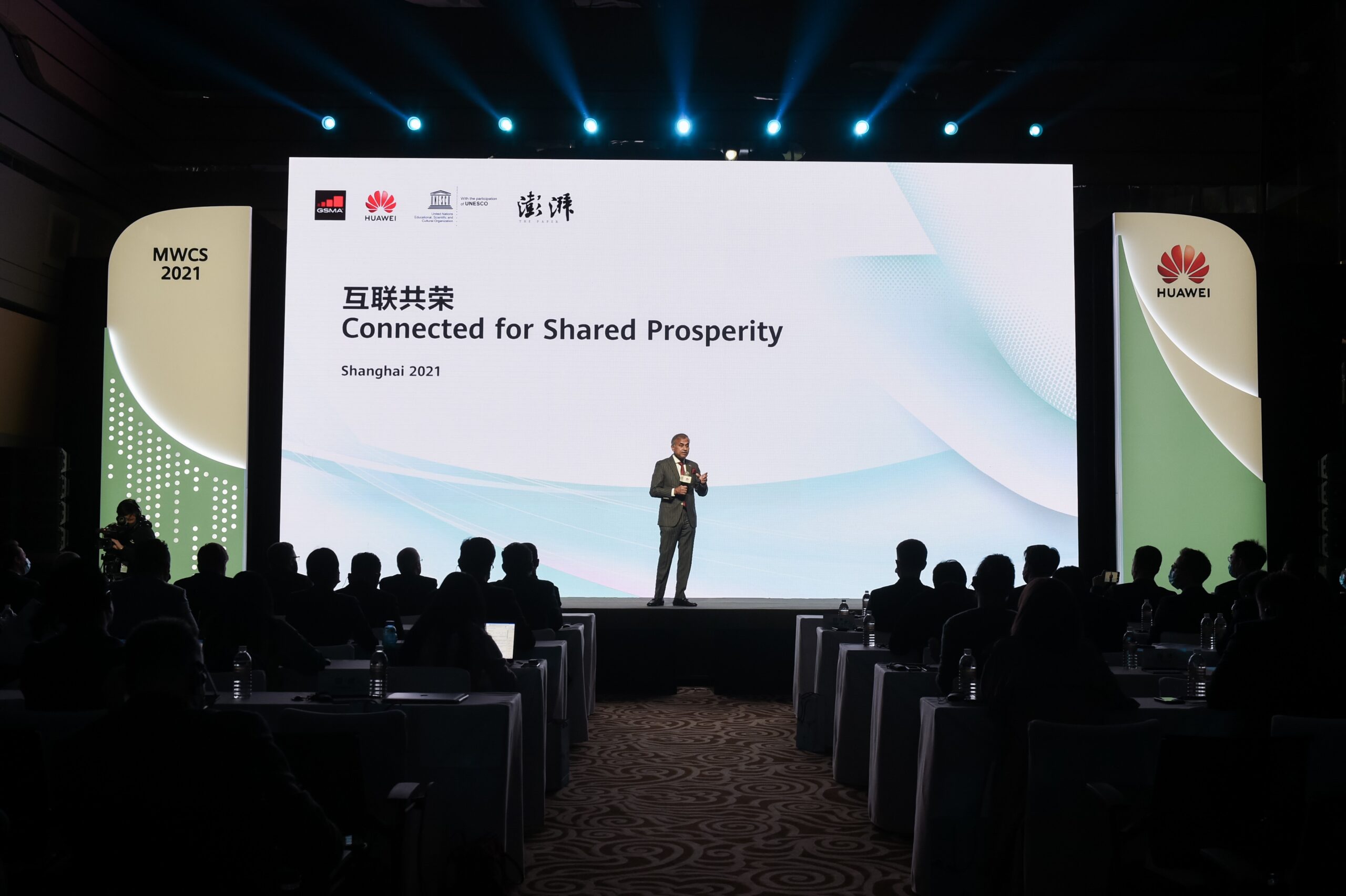Governmental ministers from multiple countries gathered on Feb 22 at the Connected for Shared Prosperity forum hosted by Huawei, GSMA, the Center for Environmental Economic Studies at Fudan University, and The Paper with the support of UNESCO as part of the lead-up to MWC Shanghai 2021.
Speakers agreed that the global economic recovery is increasing instep with greater enforcement of pandemic control measures. They also agreed that reductions in emissions, more jobs, and more initiatives in facilitating prosperity are needed to attain the UN Sustainable Development Goals (SDGs) for 2030 and the Paris Agreement’s long-term goals. Multiple speakers identified digital technologies and global collaboration as essential in this process.
Huawei has long been an advocate for supporting technological advancement. In 2020, Huawei recycled over 4,500 tons of electronic waste Through multiple initiatives including a reduction of plastics in their phone packaging (1.8 million shopping bags of plastic saved per 10 million phones) and a reduction of 148 million tons of CO2 emissions through the deployment of their FusionSolar solution in more than 60 countries and regions (equivalent to planting more than 200 million trees). Huawei also helped build the world’s largest agricultural PV power plant and fishery PV power plant in Ningxia and Shandong, respectively, both of which have contributed significantly to local environmental protection efforts.
“Ensuring inclusive and equitable quality education and promoting lifelong learning opportunities for all” has also been set as one of the UN SDGs. As of the end of 2020, Huawei’s TECH4ALL Connecting Schools and DigiTruck programs have been brought to more than 200 schools, benefiting over 60,000 teachers and students. In a related program, Huawei is also collaborating with UNESCO on a three-year Open Schools program in Egypt, Ethiopia, and Ghana that will help schools improve digital skills and support online education.
Stefania Giannini, USESCO’s Assistant Director-General for Education, stated that information and communications technologies (ICT) play a crucial role in ensuring educational continuity, making education more inclusive, and providing lifelong learning solutions through interactive websites, online libraries, and video courses.
European Parliament Member Frances Fitzgerald also noted that, with the roll out of 5G wireless networks, the world is on the threshold of the next revolution. 5G has the potential to impact positively on people’s lives and well-being in areas such as health, education, and food production, and digital technologies will facilitate sustainable development goals.
The Director General of the GSMA Mats Granryd said, “In 2016, the mobile industry was the first to fully commit to the 17 SDGs. And we have been at work ever since, contributing to every one of the 17 goals, including climate action, digital inclusion, and sustainability.”
The Director of Fudan University’s Center for Environmental Economic Studies Li Zhiqing closed out the event saying, “China is pushing for comprehensive green transformation of social and economic development, and peaking carbon emissions and achieving carbon neutrality are the top priority in the transformation. We should encourage innovation in disciplines like economics, finance, and ecological environment which span liberal arts and engineering, so as to fill the gap in talent needed for sustainable development in the future.”
(This content is surmised from a press release)








